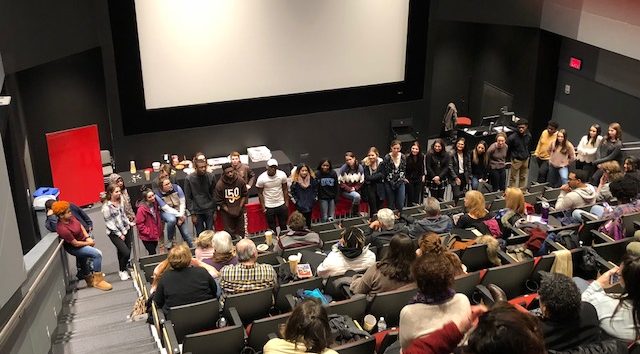Cameraperson is an examination of the ethics of documentary filmmaking. It is unlike anything I have seen before–a documentary consisting of the ethical dilemmas of other documentaries. I have explored the ethics of photography, filmmaking and photojournalism in other classes, but I have yet to come across something as unique as Cameraperson.
I was first introduced to the ethical debate surrounding subject and photographer my freshman year at Lafayette, when Professor Smith showed us “Starving Child and Vulture” by Kevin Carter. Kevin Carter was a South African photojournalist who flew to the Sudan in 1993 to document the famine that was tormenting its people. Carter’s image entitled “Starving Child and Vulture” is a color photograph of an emaciated child hunched over on the ground, with a vulture lurking behind. Carter won a Pulitzer Prize for his image, but it came at a cost. His photo sparked an international debate about the ethics of photography, and when it is acceptable for photographers to intervene. After his photo and intent had been scrutinized and debated, Carter took his own life in 1994.
Now, I’m in a class called “History in Pictures” in which most of our material involve the ethics surrounding photography. We’ve read Sontag, Barthes, Lutz and Collins, and many more theorists that are interested in the same kind of ethical dilemmas as Kirsten Johnson is with Cameraperson. The thing that separates Kirsten Johnson’s work from theirs is that Johnson’s is academic and entertaining. I was fully absorbed in her documentary, while I could very easily dose off while reading scholarly theories. Kirsten is able to draw attention to a very heavy subject matter, while sharing her own perspective, entertaining her audience, and engaging us in the debate instead of just presenting it to us. Johnson is able to connect with her audience within the first five minutes of meeting them, and continue to keep them engaged with her eloquence and wisdom. She came to all three of my classes on Monday, two of which were 3 hours long, and yet each time I didn’t want to leave. Kirsten Johnson’s visit to Lafayette is one of those things I will look back on when I am 50 years old and tell my children about.
